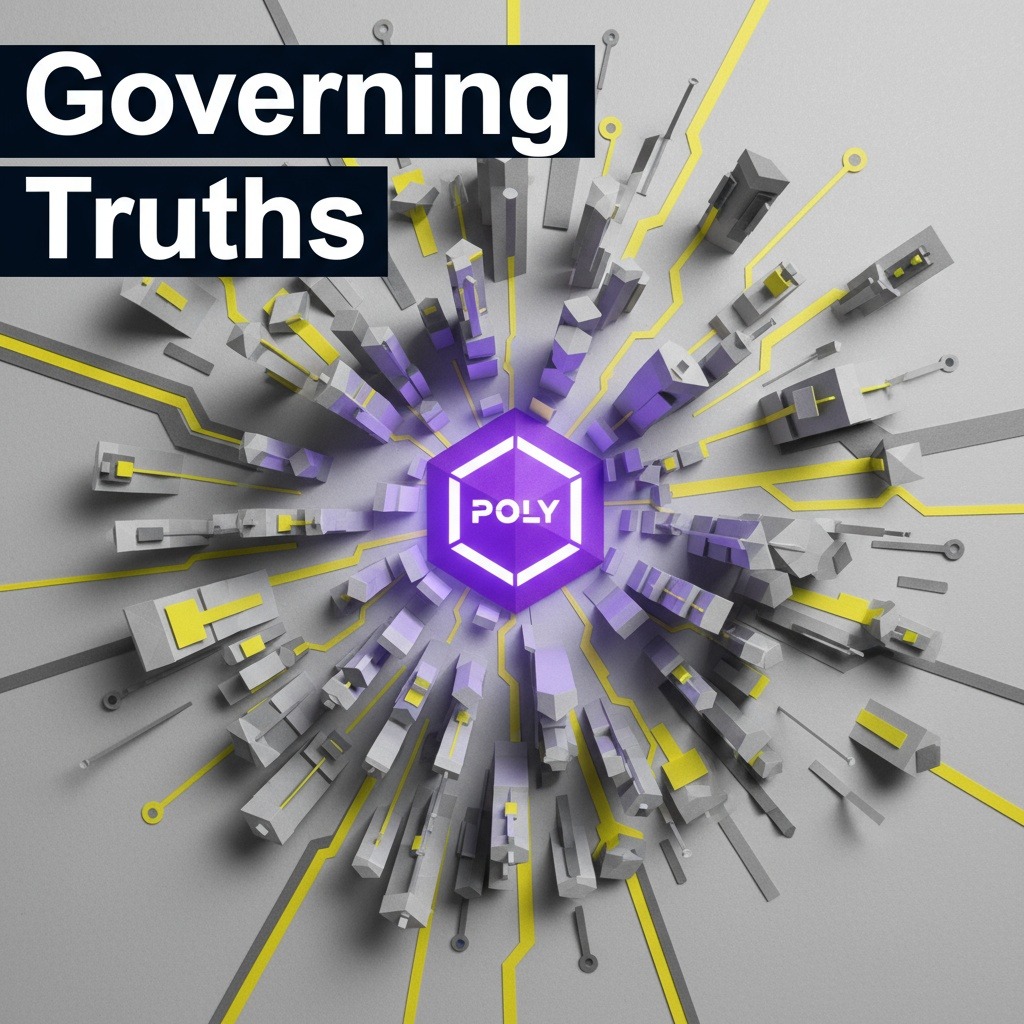Polymarket, a prominent player in the prediction markets space, is hinting at the launch of its native POLY token, a move that could transform how decentralized truth is validated and maintained within the ecosystem. This development may challenge the longstanding dominance of UMA’s oracle system and introduce new dynamics in decentralized resolution mechanisms.
Currently, Polymarket relies on UMA’s “optimistic oracle” for market resolution. UMA’s system allows any participant to propose an outcome by staking collateral, while UMA token holders vote to settle disputes. Although this approach is designed to incentivize consensus, it has faced criticism and reported incidents of manipulation, particularly involving large token holders, or “whales,” skewing outcomes to their advantage.
Community concerns have also emerged around occasional inconsistencies between Polymarket’s own statements and the oracle’s results. Such episodes have highlighted vulnerabilities inherent in the outsourced model, raising questions about the alignment of incentives toward truthful and timely outcomes.
In response, Polymarket appears to be developing its own in-house resolution layer. While specific details about the POLY token’s economics and utility remain undisclosed, the project is expected to separate the betting functionality from governance. In this model, wagers would continue to be placed using USDC, while POLY tokens would serve governance and curation roles within the resolution process.
This structural division could address two critical challenges UMA’s model faced: making truthful reporting expensive to compromise, and ensuring resolution speed sufficient to maintain market trust. UMA’s voting framework incentivizes alignment with the majority, rewarding token holders based on consensus rather than objective accuracy. Critics argue this mechanism can favor coordination over factual correctness, especially when large holders have disproportionate influence.
The use of UMA tokens as rewards regardless of factual accuracy has been a particular point of contention. This facet was notably tested during the Ukraine-themed betting events, where stakes in truth diverged from token incentives. By internalizing the dispute resolution process through POLY, Polymarket could potentially finance and govern its truth layer independently of individual betting outcomes, thereby reinforcing integrity in market resolutions.
If successful, the POLY token would not just represent another governance asset but rather embody a novel approach linking accuracy and rewards in decentralized prediction markets. It holds the promise of making “truth” a liquid, accountable, and community-owned asset, aligning incentives between market accuracy and token economics more closely than previous models.
Aside from the POLY development, broader market movements this morning include Bitcoin trading above $121,700, retreating after failing to sustain levels above $124,000 amidst profit-taking. Ethereum follows a similar trend, roughly 3.2% lower, as traders shift focus away from altcoins amid increased risk aversion. Despite short-term dips, long-term optimism persists, buoyed by institutional interest and upcoming protocol upgrades like Ethereum’s Fusaka.
Gold prices have slightly eased from recent all-time highs, trading near $4,040 per ounce. Investors continue to weigh geopolitical tensions and inflation concerns as drivers of demand. Meanwhile, in Asia-Pacific equities, Japan’s Nikkei 225 has edged down by 0.33%, reflecting cautious sentiment influenced by economic uncertainties and trade dialogue developments between Washington and Tokyo.



